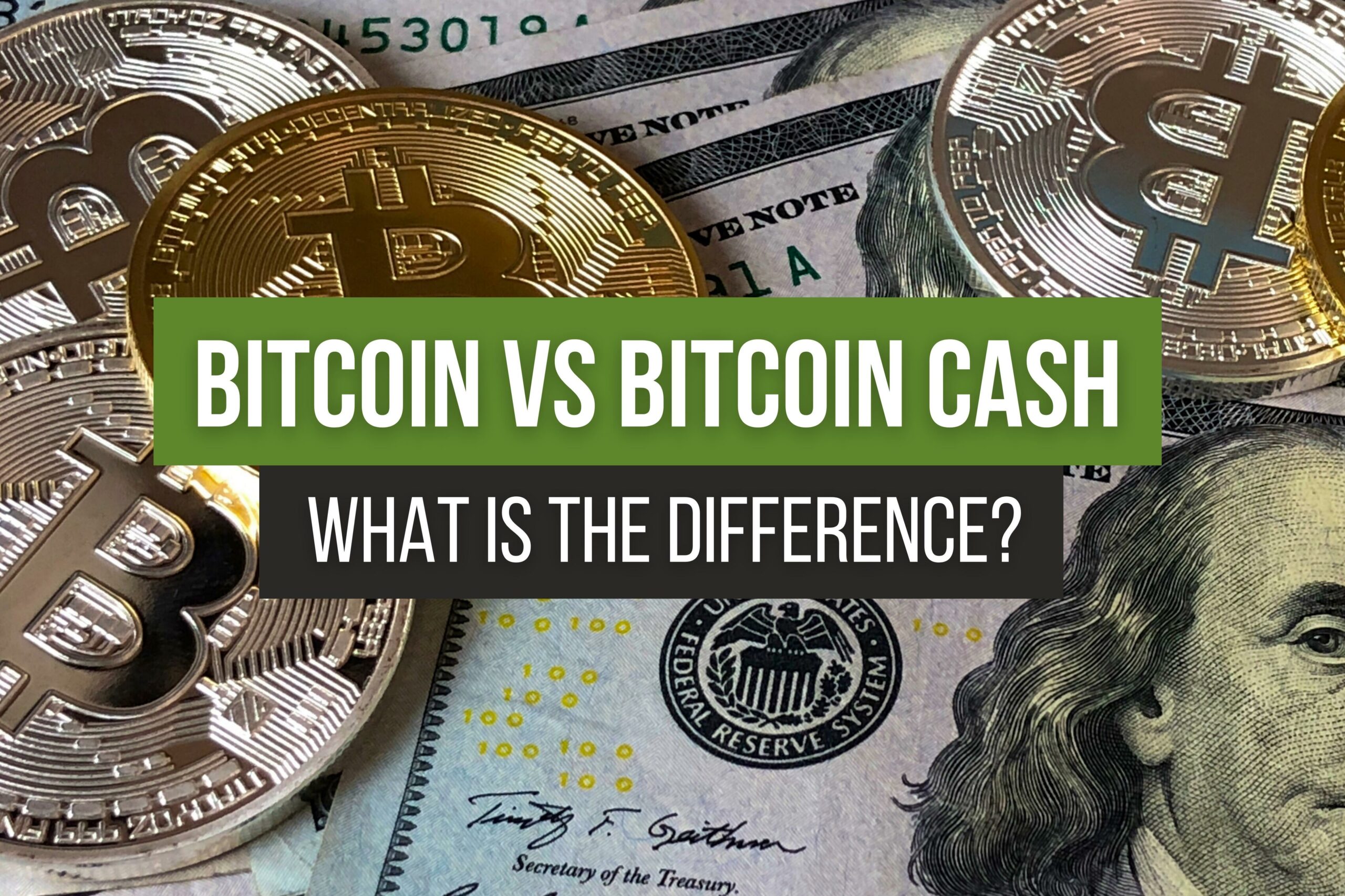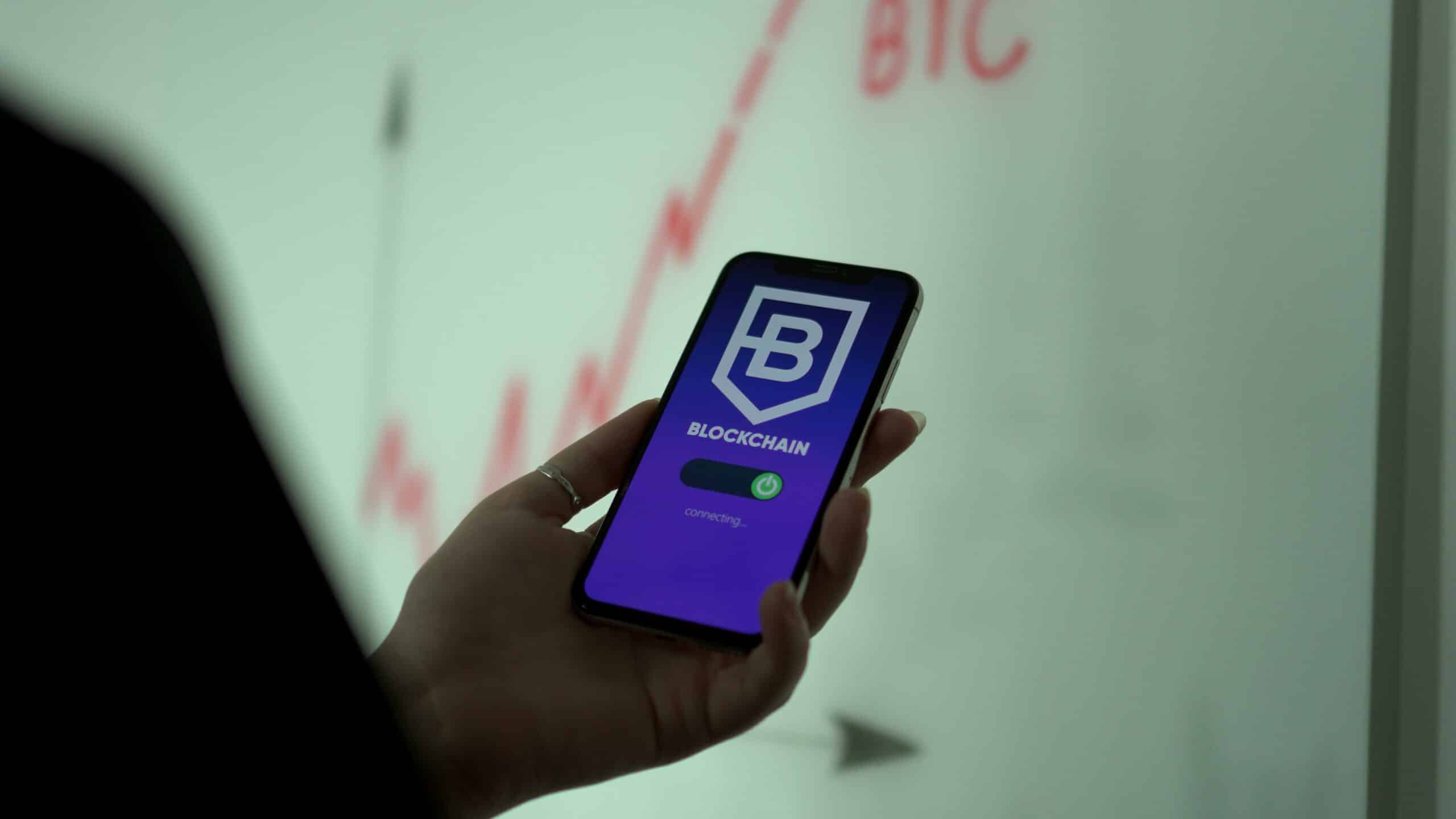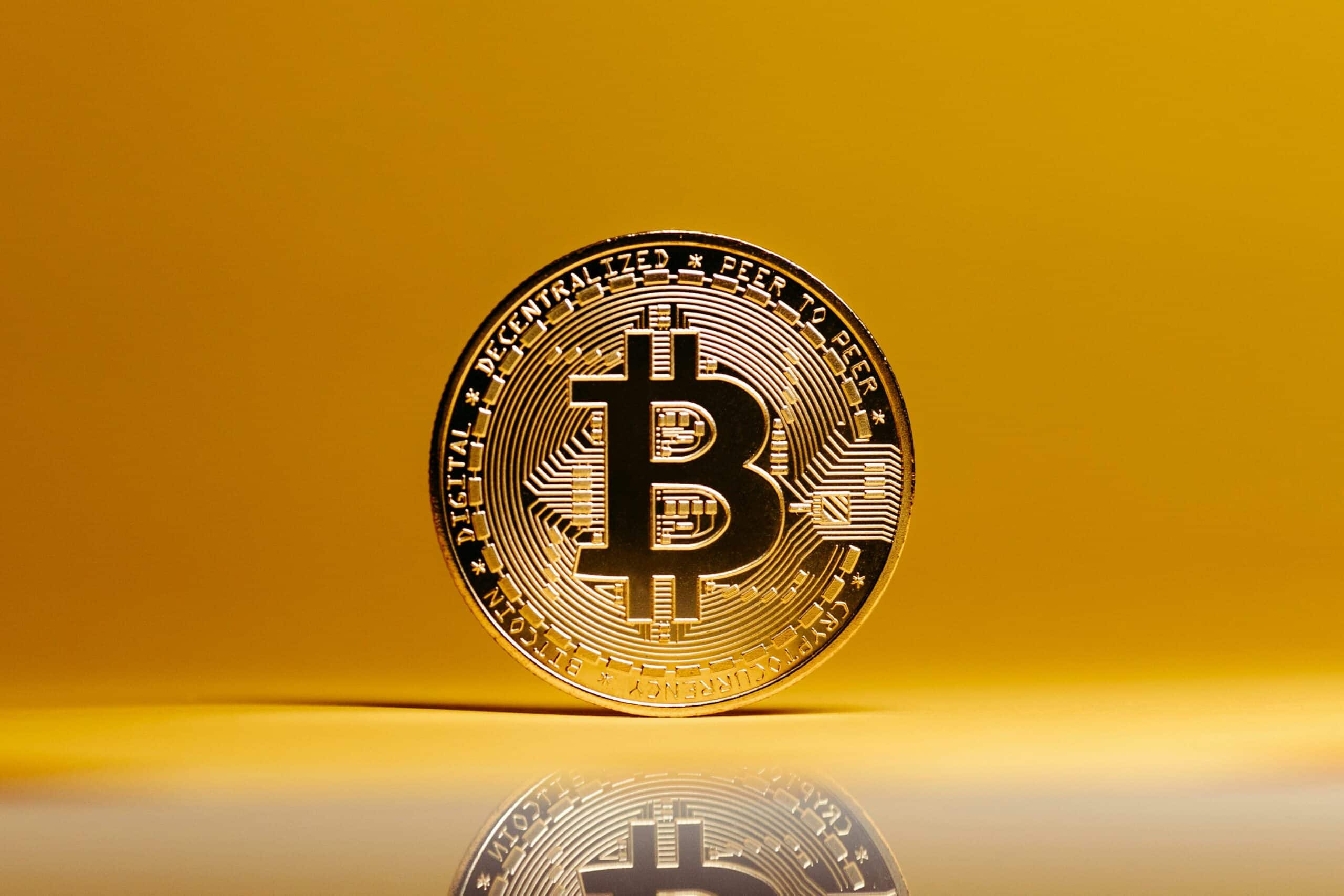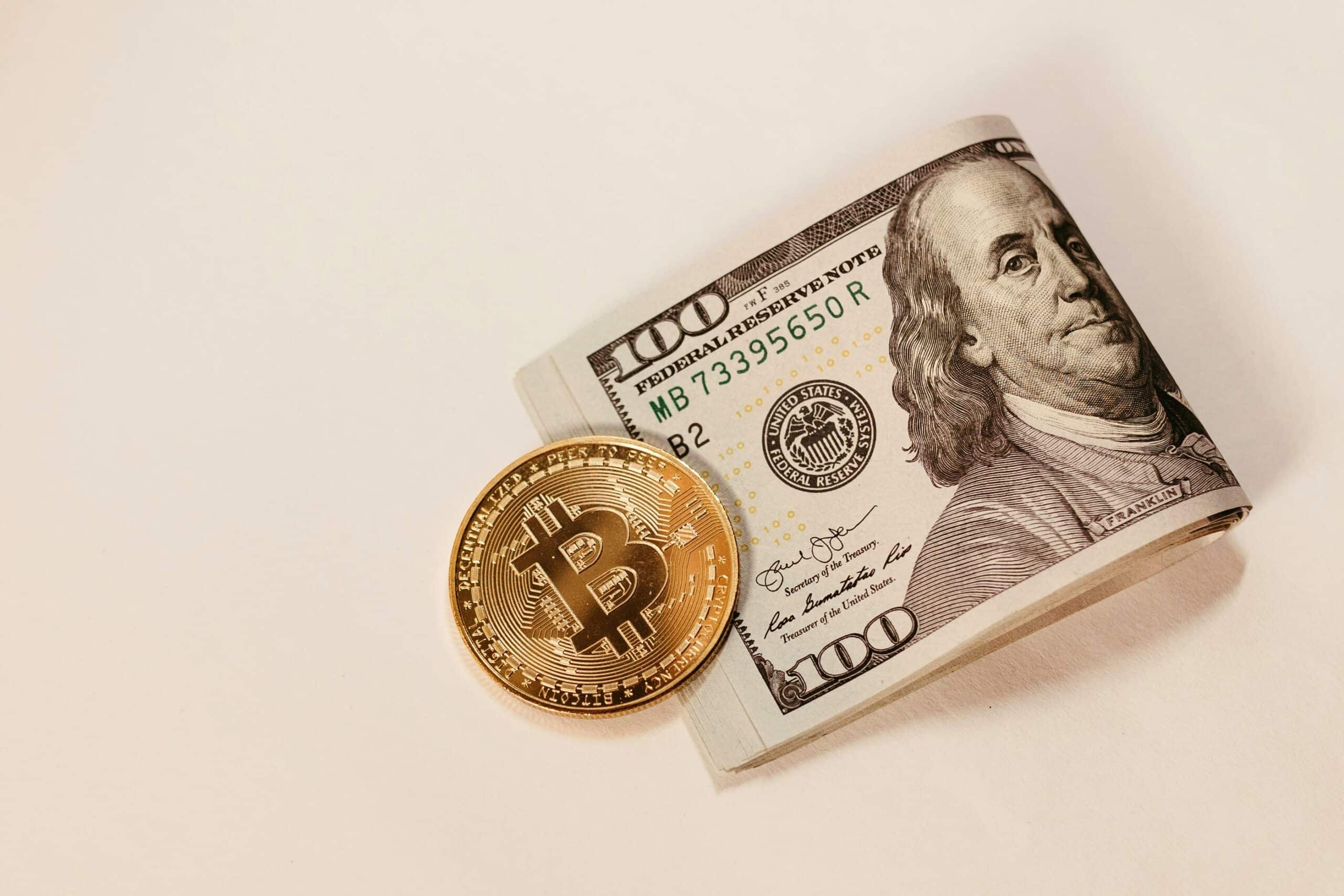Bitcoin and Bitcoin Cash are two of the most well-known cryptocurrencies in the world today. They both share a common origin but have evolved into separate digital currencies with distinct characteristics. Despite their common origin, they have forged distinct paths, each offering its own set of advantages and use cases.
In this article, we will take a closer look at Bitcoin vs. Bitcoin Cash, covering various aspects such as their origins, key features, community philosophies, and more.
We hope that this informative guide helps you gain a deeper understanding of what sets Bitcoin and Bitcoin Cash apart, empowering you to make informed decisions in the world of cryptocurrencies.
Table of Contents
What is Bitcoin (BTC)?

Bitcoin, often abbreviated as BTC, is the pioneering cryptocurrency that came into existence in 2009 when an anonymous entity or group using the pseudonym Satoshi Nakamoto released the Bitcoin whitepaper and subsequently, the first Bitcoin software. This groundbreaking digital currency laid the foundation for the broader cryptocurrency ecosystem we see today.
At its core, Bitcoin operates on a decentralized ledger called the blockchain. Imagine this blockchain as a global, digital public ledger that records every Bitcoin transaction ever made.
What sets it apart is its distributed nature; it’s not maintained by a central authority or institution but by a network of computers, known as nodes, spread across the world. These nodes validate and confirm transactions, rendering them highly resistant to manipulation and fraud.
Key Features of Bitcoin
Bitcoin possesses numerous crucial features that elevate it as a preferred choice among cryptocurrency investors. Let’s explore these features in more detail:
Limited Supply
A defining feature of Bitcoin is its capped supply. There will never be more than 21 million Bitcoins in existence. This scarcity is purposeful, designed to combat inflation and position Bitcoin as a store of value, much like precious metals such as gold.
Security
Bitcoin’s security is a cornerstone of its resilience and trustworthiness. It relies on robust cryptographic algorithms to safeguard transactions, making them highly resistant to tampering and fraud. Once a transaction is confirmed and added to the blockchain, it becomes a permanent and immutable part of the ledger, ensuring the integrity of the transaction history.
Bitcoin’s decentralized network, composed of nodes worldwide, further enhances security by eliminating a single point of failure. Even in the face of malicious actors, the network maintains security through Byzantine Fault Tolerance, ensuring the reliability and immutability of its transaction data. This formidable security infrastructure establishes Bitcoin as a trusted and secure digital asset for users worldwide.
Decentralization
Bitcoin is independent of any central authority, like a government or a bank. This decentralization grants users unparalleled control over their financial assets.
The decentralized nature of Bitcoin means that tax authorities face unique challenges in monitoring and enforcing tax compliance. Transactions occur directly between users, and while the blockchain records these transactions, it does not inherently link them to specific individuals.
Pseudonymity
Although transactions are recorded on the public blockchain, they are associated with user addresses rather than personal information. This arrangement provides a degree of privacy during transactions, offering a level of anonymity, although it is important to note that these transactions are not entirely anonymous.
Global Accessibility
One of Bitcoin’s most revolutionary features is its unparalleled accessibility on a global scale. Unlike traditional financial systems that often involve bureaucratic barriers or exclusions based on geographic location, Bitcoin operates as a borderless and inclusive digital currency.
What is Bitcoin Cash (BCH)?

Bitcoin Cash, often denoted as BCH, emerged as a result of a split from the original Bitcoin network in 2017. It was created to address certain limitations of Bitcoin, especially concerning transaction speed and cost.
The primary issue that Bitcoin Cash sought to resolve was scalability. As Bitcoin’s popularity surged, its network became congested, resulting in slower transactions and elevated fees. Supporters of Bitcoin Cash believed that increasing the block size limit (the maximum amount of data that can be processed in each block) would alleviate these issues.
Key Features of Bitcoin Cash
Bitcoin Cash (BCH) boasts several pivotal features that position it as a favored option among cryptocurrency investors.
Now, let’s take a closer look at these features to gain a deeper insight into Bitcoin Cash:
Larger Blocks
Bitcoin Cash boasts a larger block size limit in comparison to Bitcoin. This means more transactions can be processed in each block, resulting in quicker and more cost-effective transactions.
Faster Transactions
Thanks to its larger blocks, Bitcoin Cash transactions are typically faster and can be confirmed more rapidly than transactions on the Bitcoin network.
Lower Fees
With faster transaction processing and increased capacity, Bitcoin Cash often offers lower transaction fees compared to Bitcoin, making it a preferred choice for everyday transactions.
Simplified Transactions
Proponents of Bitcoin Cash argue that their cryptocurrency adheres more closely to Satoshi Nakamoto’s original vision of a peer-to-peer electronic cash system.
Bitcoin vs. Bitcoin Cash
Bitcoin and Bitcoin Cash share a common origin but have evolved in distinct directions, each with its own unique set of characteristics and capabilities. Let’s take a closer look at the comparison between Bitcoin (BTC) and Bitcoin Cash (BCH) across various key aspects.
Scarcity and Supply
- Bitcoin: Bitcoin maintains a fixed supply cap of 21 million coins, a feature often likened to precious metals like gold. This limited supply is designed to preserve value and combat inflation.
- Bitcoin Cash: Similar to Bitcoin, Bitcoin Cash also has a capped supply of 21 million coins, aligning with Bitcoin’s supply structure.
Transaction Speed and Cost
- Bitcoin: Bitcoin experienced scalability issues as it gained popularity, leading to slower transaction times and higher fees during peak usage. While solutions like the Lightning Network have been developed to mitigate these problems, Bitcoin transactions can still be relatively sluggish and costly.
- Bitcoin Cash: The larger block size of Bitcoin Cash enables faster transaction processing, and transactions are often more economical than those on the Bitcoin network. This makes Bitcoin Cash a more suitable choice for everyday transactions.
Community and Philosophy
- Bitcoin: The Bitcoin community often portrays Bitcoin as digital gold, emphasizing its role as a store of value. Many in this community focus on long-term investment and wealth preservation.
- Bitcoin Cash: Bitcoin Cash positions itself as digital cash for day-to-day transactions.
Development and Innovation
- Bitcoin: The Bitcoin community tends to take a conservative approach to development, prioritizing security and stability. Major changes are often subjected to extensive debate and caution.
- Bitcoin Cash: In contrast, proponents of Bitcoin Cash are more receptive to changes and innovations, particularly those aimed at enhancing transaction speed and cost-efficiency.
Market Capitalization and Adoption
- Bitcoin: Bitcoin is the most widely recognized and adopted cryptocurrency, boasting the highest market capitalization. It is accepted by an ever-increasing number of businesses and holds a prominent position in the investment world.
- Bitcoin Cash: While Bitcoin Cash has garnered its share of supporters and use cases, it falls behind Bitcoin in terms of market capitalization and adoption.
Bitcoin vs. Bitcoin Cash: Which is Better for Investments and Which is Better for Payments?

When it comes to choosing between Bitcoin (BTC) and Bitcoin Cash (BCH) for investments and payments, the decision depends on your specific financial goals and needs.
For Investments
Bitcoin is often considered a better choice for long-term investments. Several factors make Bitcoin an attractive investment:
Historical Performance
Bitcoin has demonstrated significant price appreciation over its history, attracting both institutional and retail investors. Its track record as a speculative asset has made it a popular choice for investment portfolios.
Institutional Acceptance
Bitcoin has gained recognition and acceptance from major financial institutions, further validating its status as a legitimate investment asset.
HODLing Culture
Many Bitcoin enthusiasts adopt a “HODL” mindset, emphasizing holding onto Bitcoin for the long term rather than actively trading or spending it. This culture aligns with Bitcoin’s role as a digital store of value.
For Payments
Bitcoin Cash (BCH) is better suited for everyday payments. Here’s why Bitcoin Cash is often preferred for transactions:
Faster Transactions
Bitcoin Cash boasts larger block sizes, allowing for faster transaction processing and quicker confirmations. This makes it more suitable for everyday transactions, such as buying goods and services.
Lower Fees
Transactions on the Bitcoin Cash network often come with lower fees compared to Bitcoin, making it cost-effective for small and frequent payments.
Merchant Acceptance
Some businesses and online merchants accept Bitcoin Cash as a means of payment, solidifying its role as a digital cash system.
Emphasis on Spending
Unlike the “HODL” culture associated with Bitcoin, Bitcoin Cash users are encouraged to use their holdings for transactions, reflecting its focus on everyday payments.
If your goal is to invest for the long term and potentially benefit from price appreciation, Bitcoin (BTC) is a better choice. However, if you’re looking for a cryptocurrency to facilitate fast, low-cost transactions and use as digital cash for everyday spending, Bitcoin Cash (BCH) is the preferred option. Your choice should align with your specific financial objectives and intended use within the cryptocurrency ecosystem.
Conclusion
Both Bitcoin (BTC) and Bitcoin Cash (BCH) exhibit unique characteristics and serve distinct purposes in the world of cryptocurrencies.
Bitcoin, with its limited supply and emphasis on security, is frequently regarded as a digital store of value and a long-term investment. Conversely, Bitcoin Cash, with its quicker and more affordable transactions, positions itself as a peer-to-peer electronic cash system suitable for everyday transactions.
The choice between Bitcoin and Bitcoin Cash hinges on your specific requirements and beliefs within the cryptocurrency space. If you prioritize long-term investment and stability, Bitcoin may align better with your objectives.
If you seek a cryptocurrency that caters to day-to-day transactions, Bitcoin Cash could be the preferred choice. Ultimately, conducting thorough research and understanding the differences between the two is paramount when navigating the cryptocurrency landscape.
To stay up to date on the latest developments in the world of cryptocurrencies, sign up for the Crypto Bookworm newsletter. Stay ahead of the curve and make informed decisions in your crypto journey.
FAQs
1. Do I need two separate wallets to hold Bitcoin and Bitcoin Cash?
No, you do not necessarily need two separate wallets to hold Bitcoin (BTC) and Bitcoin Cash (BCH). Both BTC and BCH have similar wallet compatibility, meaning that many cryptocurrency wallets, like Trezor or Ledger, that support Bitcoin (BTC) will also support Bitcoin Cash (BCH).
However, it’s essential to verify that the wallet you choose explicitly states support for both cryptocurrencies. Most wallets can store multiple cryptocurrencies, making it convenient to manage both BTC and BCH in a single wallet.
2. Should I buy Bitcoin or Bitcoin Cash?
The decision to buy Bitcoin (BTC) or Bitcoin Cash (BCH) depends on your investment goals and risk tolerance. Here are some factors to consider:
- Investment Strategy: Bitcoin (BTC) is often considered a long-term store of value, similar to digital gold. If you are looking for an investment with the potential for significant appreciation over time, Bitcoin might be your choice.
- Transaction Needs: If you plan to use cryptocurrency for day-to-day transactions due to its faster confirmation times and lower fees, Bitcoin Cash (BCH) could be a better fit.
- Research: It’s crucial to research both cryptocurrencies thoroughly, understand their use cases, and stay informed about market trends before making a decision.
Ultimately, the choice between BTC and BCH should align with your specific financial objectives and investment strategy.
3. Are BTC and BCH on the same blockchain?
No, Bitcoin (BTC) and Bitcoin Cash (BCH) are not on the same blockchain. They split into separate blockchains in 2017 during a process known as a hard fork. A hard fork occurs when changes to the underlying rules of a cryptocurrency are not backward compatible, leading to the creation of a new blockchain and cryptocurrency.
Bitcoin Cash (BCH) has its own blockchain, which is separate from the Bitcoin (BTC) blockchain. Each blockchain has its own set of rules, miners, and network participants. This split allowed Bitcoin Cash to implement larger block sizes, which, in turn, enables faster and cheaper transactions compared to the original Bitcoin network.
It’s important to note that while the two cryptocurrencies share a common history up to the fork, they have since developed independently with their communities and infrastructures.
Read also: What is Crypto Hardware?














